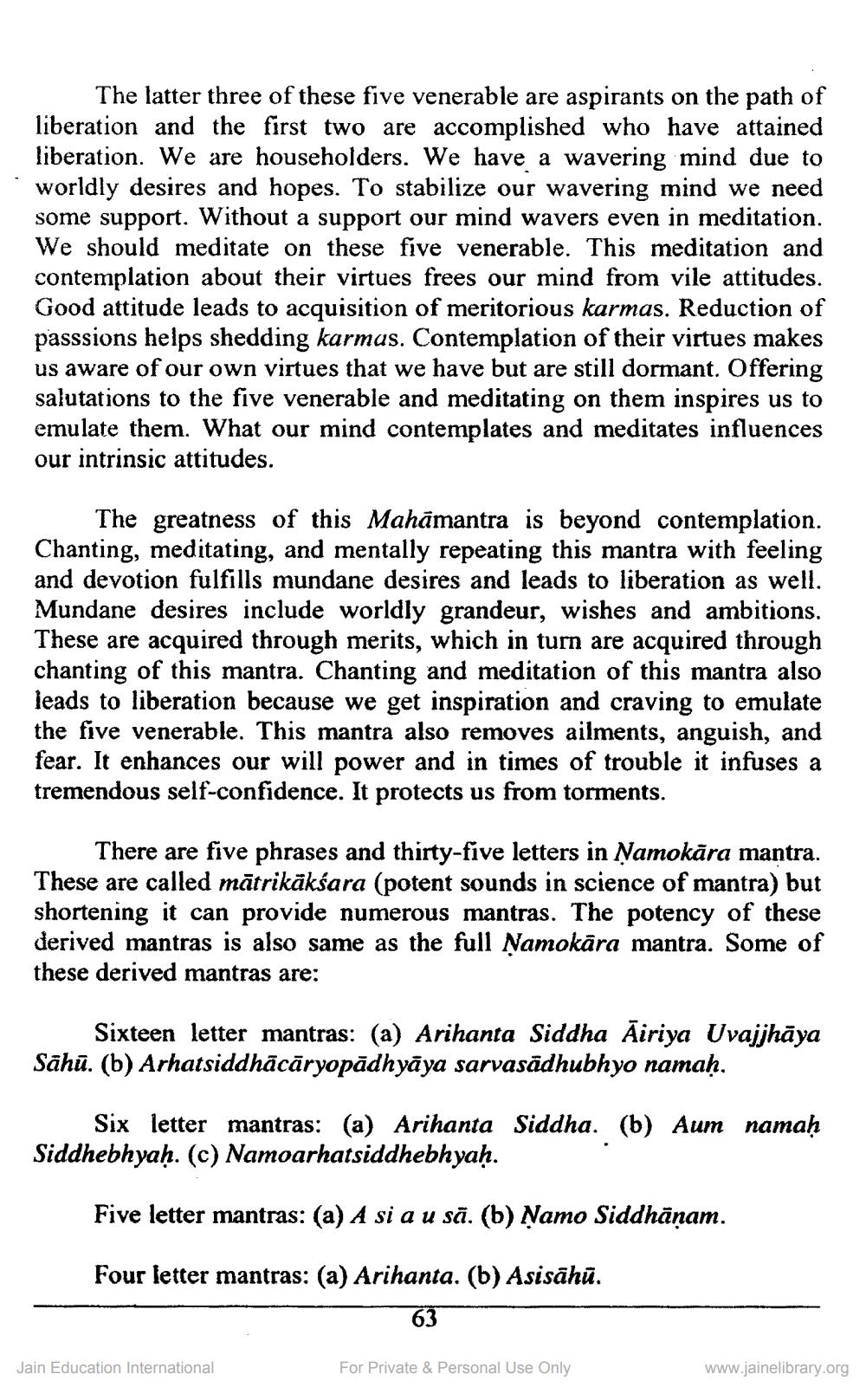________________
The latter three of these five venerable are aspirants on the path of liberation and the first two are accomplished who have attained liberation. We are householders. We have a wavering mind due to worldly desires and hopes. To stabilize our wavering mind we need some support. Without a support our mind wavers even in meditation. We should meditate on these five venerable. This meditation and contemplation about their virtues frees our mind from vile attitudes. Good attitude leads to acquisition of meritorious karmas. Reduction of passsions helps shedding karmas. Contemplation of their virtues makes us aware of our own virtues that we have but are still dormant. Offering salutations to the five venerable and meditating on them inspires us to emulate them. What our mind contemplates and meditates influences our intrinsic attitudes.
The greatness of this Mahāmantra is beyond contemplation. Chanting, meditating, and mentally repeating this mantra with feeling and devotion fulfills mundane desires and leads to liberation as well. Mundane desires include worldly grandeur, wishes and ambitions. These are acquired through merits, which in turn are acquired through chanting of this mantra. Chanting and meditation of this mantra also leads to liberation because we get inspiration and craving to emulate the five venerable. This mantra also removes ailments, anguish, and fear. It enhances our will power and in times of trouble it infuses a tremendous self-confidence. It protects us from torments.
There are five phrases and thirty-five letters in Ņamokāra mantra. These are called mātrikākśara (potent sounds in science of mantra) but shortening it can provide numerous mantras. The potency of these derived mantras is also same as the full Ņamokāra mantra. Some of these derived mantras are:
Sixteen letter mantras: (a) Arihanta Siddha Āiriya Uvajjhāya Sāhū. (b) Arhatsiddhācāryopādhyāya sarvasādhubhyo namaḥ,
Six letter mantras: (a) Arihanta Siddha. (b) Aum namah Siddhebhyaḥ. (c) Namoarhatsiddhebhyaḥ.
Five letter mantras: (a) A si a u sā. (b) Namo Siddhāṇam.
Four letter mantras: (a) Arihanta. (b) Asisāhū.
Jain Education International
For Private & Personal Use Only
www.jainelibrary.org




